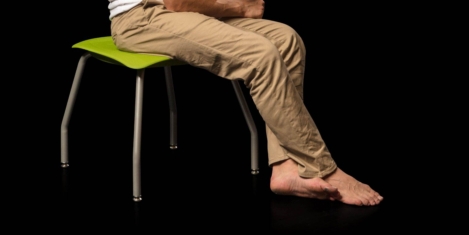September 21, 2017
Majority of employers fail to support workers’ efforts to lead an active lifestyle
 The majority of UK employees (61 percent) do not feel encouraged by their employer to lead an active lifestyle, despite most managers agreeing that exercise positively impacts employees’ productivity (78 percent) and their ability to handle stress (82 percent) claims new research from AXA PPP healthcare. Of those British employees who do exercise after work, nearly half (46 percent) would prefer to do so before work but 79 percent blame a lack of time in the morning; yet for those who find time to be physically active before work, three quarters (75 percent) feel it spurs them on to be more effective in the morning while 69 percent feel more productive. More worryingly, nearly half of employees (45 percent) of employees admit they do not do the NHS recommended 30 minutes of daily exercise, five times a week, but finding time to be physically active during the working day can be difficult, or undesirable. Sixty?two percent of employees with good intentions to exercise at work find they’re cancelling their lunchtime exercise plans due to workload or work commitments.
The majority of UK employees (61 percent) do not feel encouraged by their employer to lead an active lifestyle, despite most managers agreeing that exercise positively impacts employees’ productivity (78 percent) and their ability to handle stress (82 percent) claims new research from AXA PPP healthcare. Of those British employees who do exercise after work, nearly half (46 percent) would prefer to do so before work but 79 percent blame a lack of time in the morning; yet for those who find time to be physically active before work, three quarters (75 percent) feel it spurs them on to be more effective in the morning while 69 percent feel more productive. More worryingly, nearly half of employees (45 percent) of employees admit they do not do the NHS recommended 30 minutes of daily exercise, five times a week, but finding time to be physically active during the working day can be difficult, or undesirable. Sixty?two percent of employees with good intentions to exercise at work find they’re cancelling their lunchtime exercise plans due to workload or work commitments.









 The majority of North American office workers expect their employers to provide technology that allows them to work from wherever they choose and three quarter of employees (74 percent) would rather leave their job to work for an organisation that would allow them to work remotely more often, even if their salary stayed the same. This is because working remotely has moved from being a work perk to a necessity of 21
The majority of North American office workers expect their employers to provide technology that allows them to work from wherever they choose and three quarter of employees (74 percent) would rather leave their job to work for an organisation that would allow them to work remotely more often, even if their salary stayed the same. This is because working remotely has moved from being a work perk to a necessity of 21





















